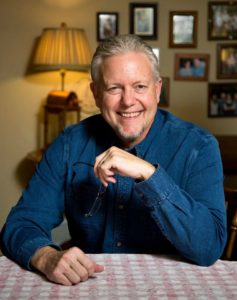Do you have arguments?
Or do you make arguments?
I teach in the public university where we teach people to think, not shout.
Watch our Truth in Two finding out why we should be careful with our words (full text below).
My beliefs do not change, neither does my love for my neighbor whose beliefs won’t change either.

Subscribe to “Truth in Two” videos from Comenius (here). Mark is President of The Comenius Institute (website). Dr. Eckel spends time with Christian young people in public university (1 minute video), hosts a weekly radio program with diverse groups of guests (1 minute video), and interprets culture from a Christian vantage point (1 minute video). Consider becoming a Comenius patron (here).
Picture Credit: Luke Renoe, Snappy Goat
FULL TEXT
One of the reasons I love teaching on the public campus is the opportunity to be with others who may think differently than I do. I grow in my understanding of people and their beliefs. Neither of us is necessarily giving up our beliefs. But we hear each other. Friendships are born. Camaraderie is built. Even between people who disagree with each other’s point of view.
For instance, this semester, I am teaching a course on argumentative writing. One of the first lessons in making an argument is listening to what others believe. Another lesson immediately connected to listening is showing empathy for other’s points of view. To acknowledge another’s pain or joy, grief or delight is a demonstration of acceptance, not of a person’s belief but of the person themselves.
Crucial to the process for making an argument, are the definitions used for words. One of my many mantras is “Whoever controls the definition, controls the conversation.” So, it is essential that when we are making an argument, both sides should agree to how we define words.
Now you may have noticed that I have intentionally used the phrase “making an argument.” Like me, I’m sure you’ve had enough experience with people “having an argument.” It’s not always a pretty sight! The idea of “making an argument” is that we are thoughtful about what we say and how we say it.
The public university campus is a great place to help young people learn how to speak with others. Some of the people I like the most are those who may disagree with me. We have learned to make an argument.
For Truth in Two, this is Dr. Mark Eckel, President of the Comenius Institute, personally seeking truth wherever it’s found.


